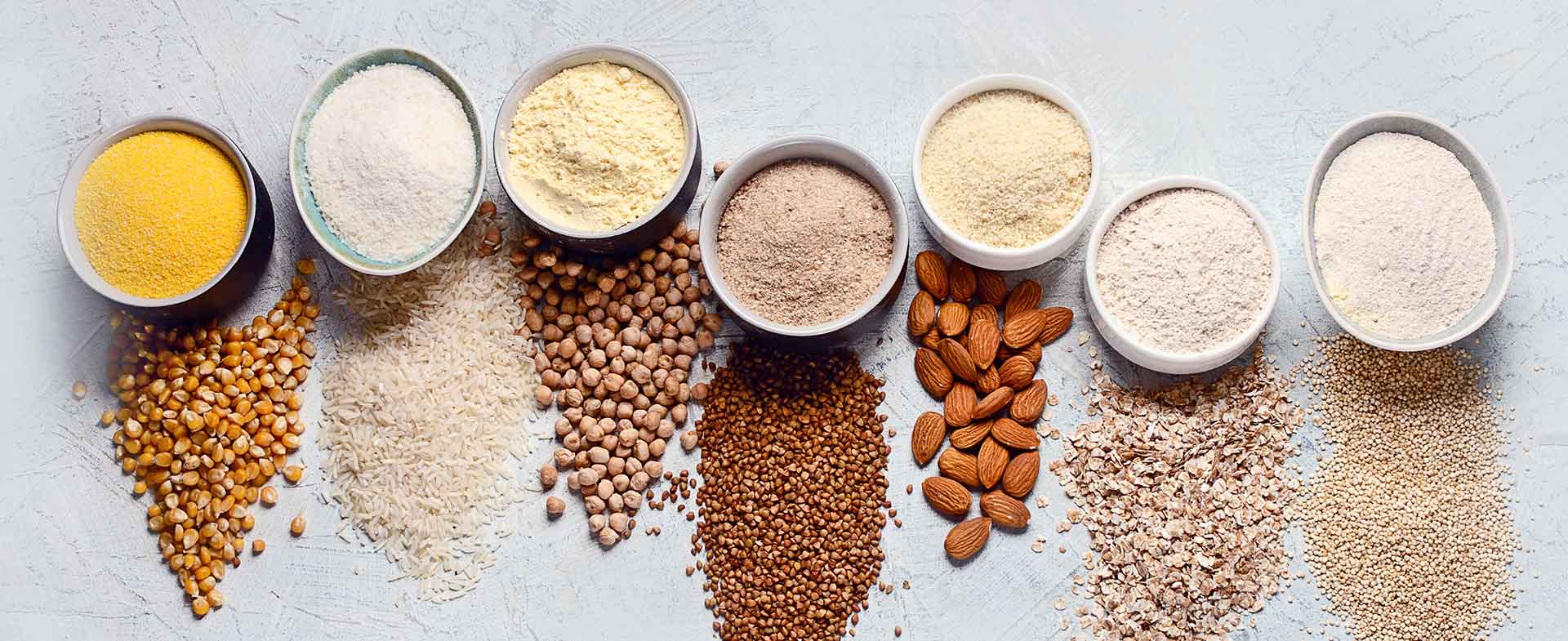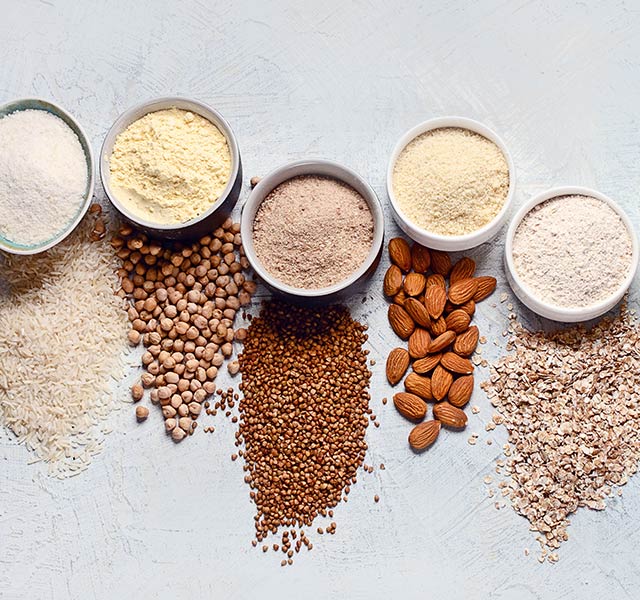Have you noticed how many different types of flour are available in the baking aisle of your grocery store? In addition to the familiar all-purpose flour, you’ll find many alternatives, including whole-wheat, buckwheat, chickpea and almond flours.
It turns out that swapping whole-grain and nut-based flours for a portion of the all-purpose flour in your favorite recipe offers many health benefits. “These flours add protein, fiber and other nutrients,” says Alyssa Katz, RD, a registered dietitian at Henry Ford Health. “At the same time, you’re adding new flavors and textures. It’s a win-win situation.”
What Are The Benefits Of Whole-Grain And Nut-Based Flours?
Flour is a key ingredient in baked goods, including bread, muffins and cakes. The type of flour you use in a recipe affects the finished product's consistency, taste and nutrients.
Many recipes call for all-purpose flour, which is made using only the inside of the wheat grain, called the endosperm. This inner part of the grain contains carbohydrates, protein and some nutrients.
But whole-grain flours offer additional nutrients because they’re made using every part of the grain. In addition to nutrients contained in all-purpose flour, whole-grain flours have:
- Added protein, vitamins and antioxidants: Whole-grain flours are loaded with protein, which helps rebuild and repair muscle throughout the body. These flours also contain vital vitamins and antioxidants that support a healthy body, reduce inflammation and fight off disease.
- Fiber: The bran (outer layer of the grain) and the germ (inside portion of the grain) are packed with fiber, an essential part of a healthy diet. Fiber aids digestion, lowers cholesterol, controls blood sugar and reduces the risk for heart disease and some cancers. It also keeps you fuller longer, helping you manage your weight. But many Americans fail to eat the recommended 20 to 30 grams of fiber each day. Adding whole-grain flour to your baked goods can help you reach that goal.
There are many flours high in protein and fiber, including:
- Nut-based flours like almond and peanut flour
- Coconut flour
- Chickpea flour
Flours made from grains like wheat, barley and rye contain gluten, a protein that contributes to the structure of baked goods. Flours made from nuts or legumes offer an alternative for individuals with celiac disease, a condition that affects the body’s ability to process gluten.
Tips For Using And Storing Whole-Grain And Nut-Based Flours
Katz suggests following these steps when baking with alternative flours:
- Experiment: Try different flours to enhance the flavor and nutrients in your baked goods. Start your day by making blueberry pancake muffins with whole-wheat flour for a hearty and nutritious breakfast. Boost the nutrients in your favorite pie recipe by adding almond flour to the crust.
- Use the right flour portions: With whole-grain flours, replace 25% to 50% of the all-purpose flour with the whole-grain option to retain the structure of the baked good and enjoy the added nutrients. Nut, legume and seed-based flours lack gluten, which gives structure to baked goods. If using one of these options, you’ll need to add a binder such as xanthan gum or eggs. You can also mix these alternatives with gluten-free or whole-wheat flour to get the structure you want.
- Add moisture: Whole-grain and nut flours may lead to a drier bread dough or cake batter. If you want to moisten your batter, add 1 to 2 tablespoons of water or other liquid to the recipe.
- Store flour properly: Keep all-purpose flour in an air-tight container at room temperature. But whole-grain and nut flours contain higher portions of fat that can spoil if kept at room temperature. Store these flours in an air-tight container in the freezer for up to a year.
“Be creative as you find new ways to boost the nutrition and reduce the guilt when enjoying baked goods,” says Katz. Get started with these recipes:
- Carrot cake muffins
- Cranberry walnut soft-baked granola bars
- Viola crepes with lemon cream and blueberry sauce
Looking for more nutrition advice and want to make an appointment with a registered dietitian? Call 1-855-434-5483 or visit Nutrition Services on henryford.com.
Alyssa Katz is a community dietitian with Henry Ford’s Generation with Promise team.



